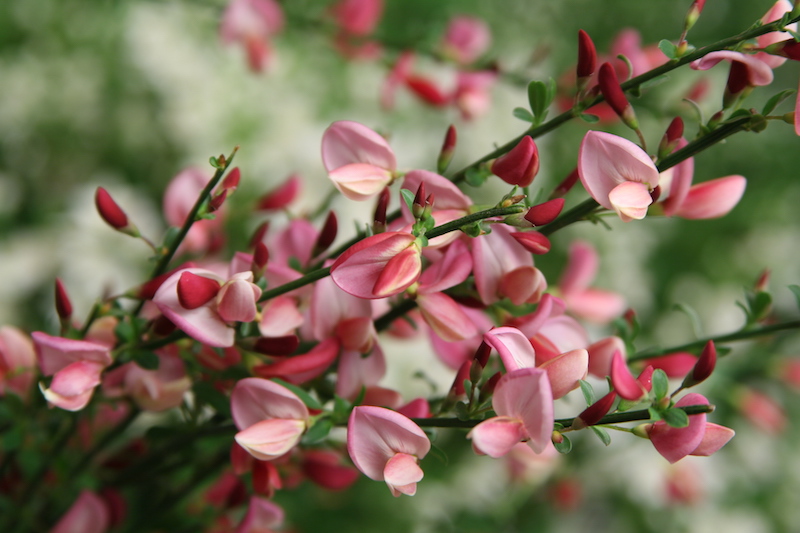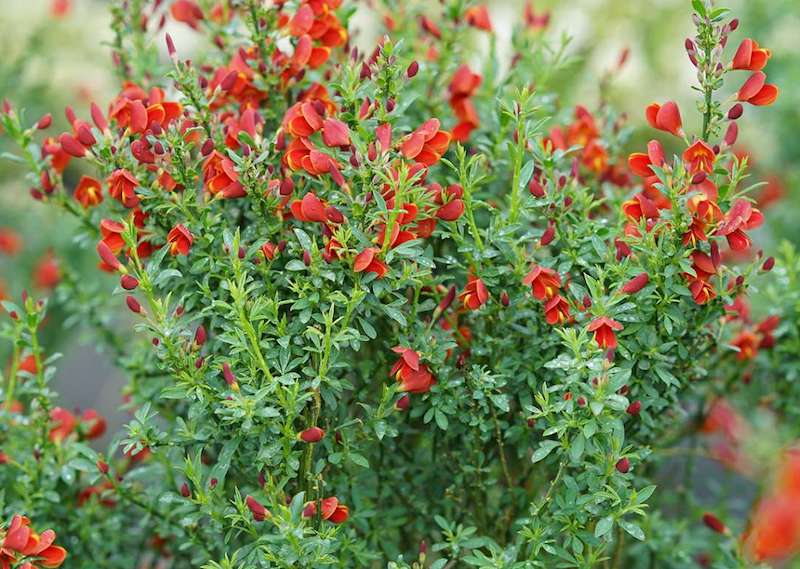There are many ornamental shrubs that do not appeal to browsing deer, and Scotch Broom is one of them. Although Scotch Broom is rarely a deer's preferred plant to nibble on, deer will eat anything if they are hungry enough. Sometimes their preferred food source is in short supply due to harsh winters, or the herd is large and competing for the same resources. Deer naturally tend to avoid plants with leathery, fuzzy, thorny leaves, or sharp, pungent scents, such as herbs or plants that release sap.

The good news is that Scotch Broom is considered highly deer resistant. According to Rutgers University, this plant is Rarely Damaged on their rating scale from Rarely Damaged to Frequently Severely Damaged.
| Rarely Damaged |
| Seldom Severely Damaged |
| Occasionally Severely Damaged |
| Frequently Severely Damaged |
Keeping Deer Away From Scotch Broom
Even though Scotch Broom is rarely eaten by deer, there are plenty of products available to successfully deter deer from eating your plants and equally plentiful resources for homemade deer-repellent recipes. The key to success is using them consistently on all parts of the plant. Some products smell sulfuric, like rotten eggs or garlic, contain blood meal, or have mint and hot pepper oils that are unpalatable. Deer have a highly developed sense of smell, so once you apply the liquid repellent, deer can detect the odor for weeks.
The unpleasant odor from repellents is undetectable to humans a few hours after spraying, but the deer will take notice. If you do notice deer nibbling on Scotch Broom, it's good practice to rotate the repellents so deer will not become accustomed to a particular taste or scent. Read product labels for instructions on how often to apply the product.

Will Scotch Broom Come Back After Deer Eat Them?
Scotch Broom blooms in the spring on old wood, so any pruning should be done after the blooming cycle is finished. If the plant was munched on by deer, resulting in scraggly branches, cut back the damaged areas to the base to encourage strong, lush new foliage, and then spray with a repellent. Your Scotch Broom should recover quickly.
Sources: Rutgers New Jersey Agricultural Experiment Station ‘Landscape Plants Rated by Deer Resistance’ 2018
 |
Author Chris Link - Published 01-26-2023 |


